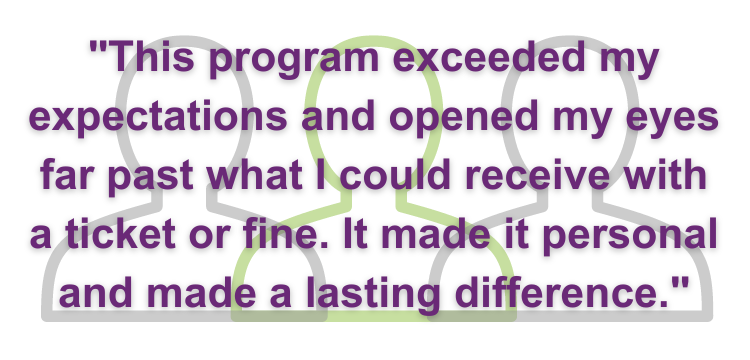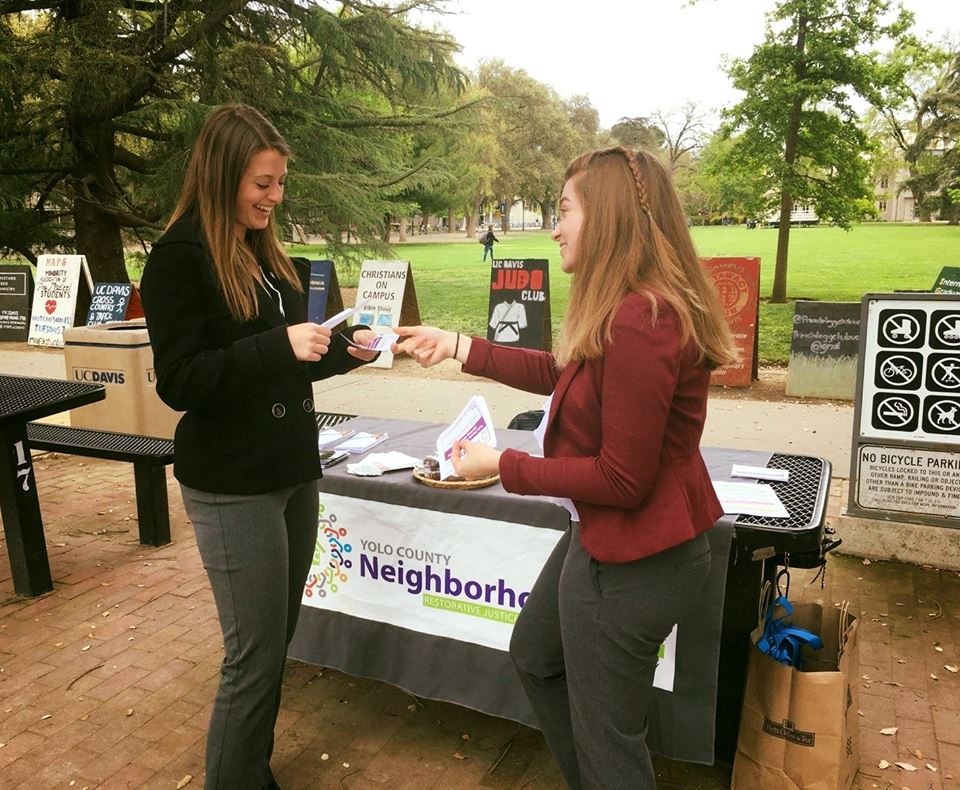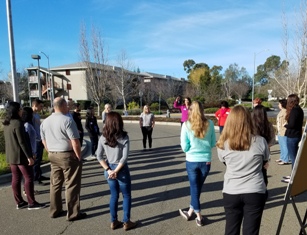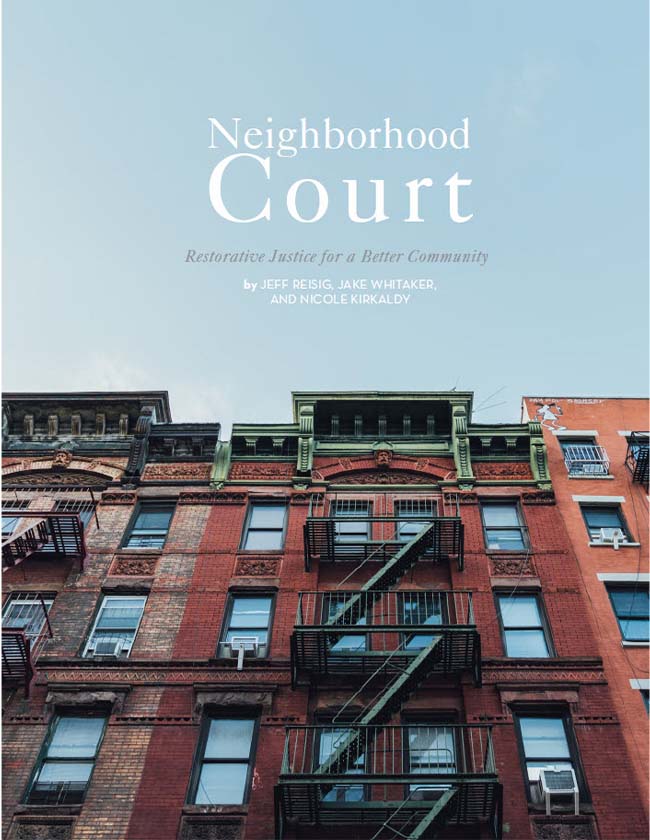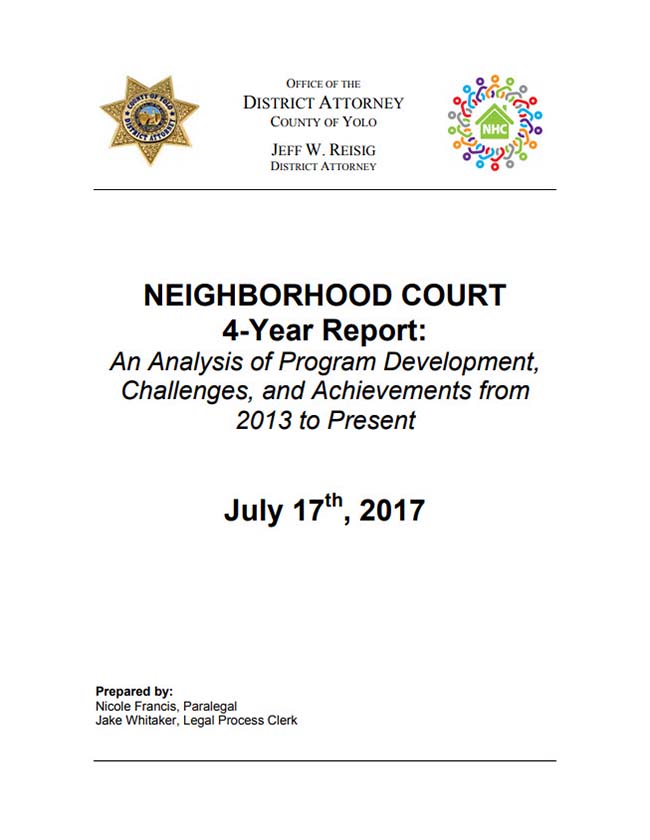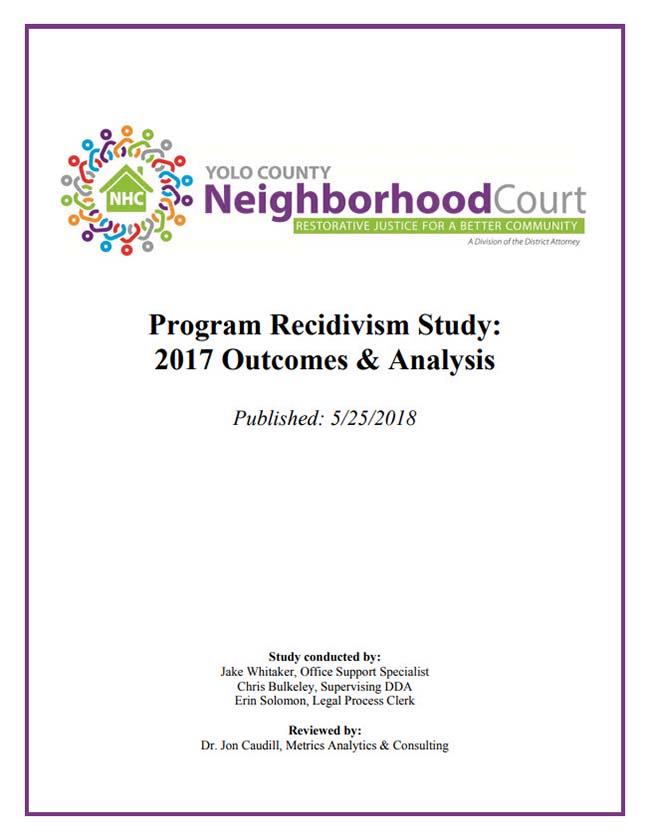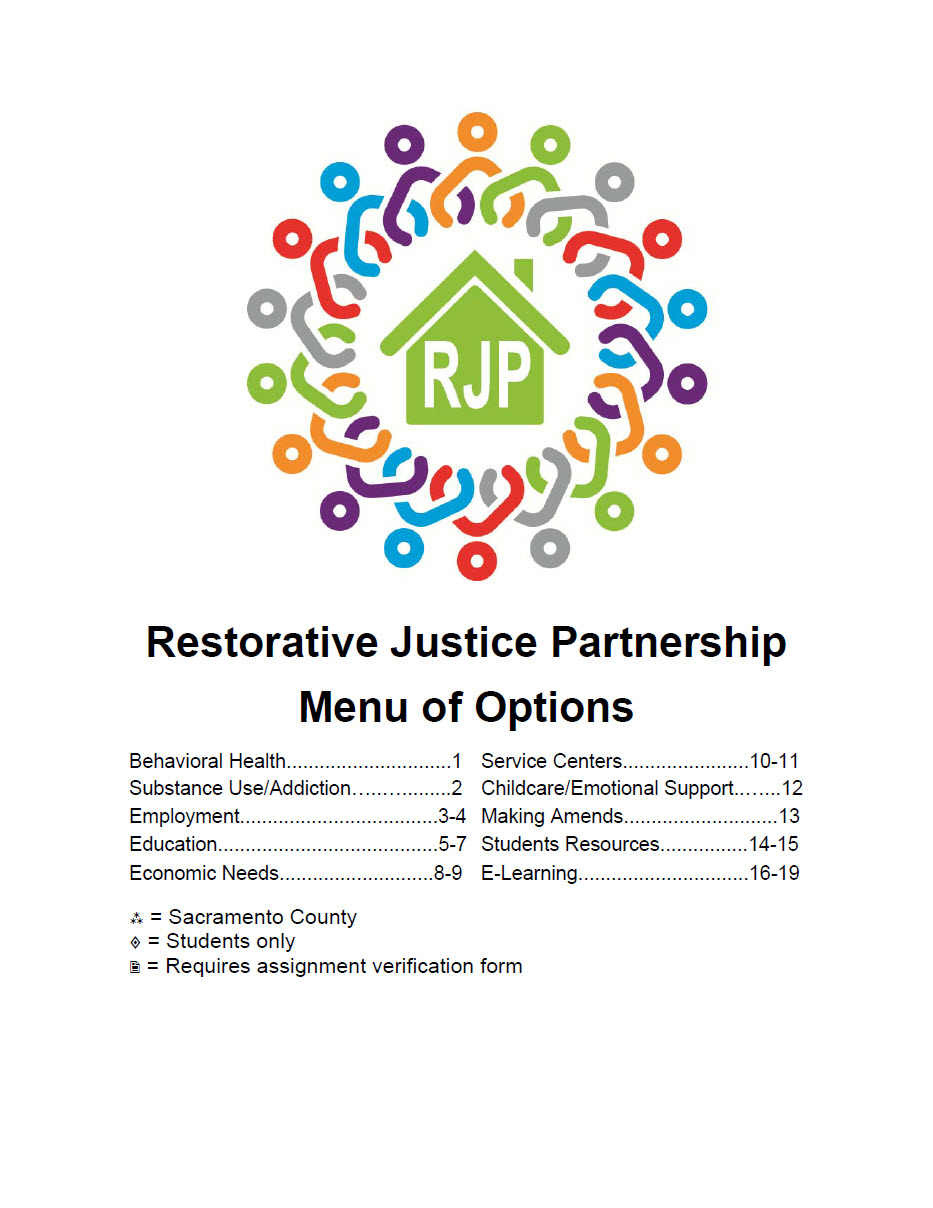Restorative Justice Partnership
What is Restorative Justice Partnership?
Restorative Justice Partnership (RJP) is an adult criminal diversion program. RJP uses the principles of restorative justice to resolve offenses outside of the traditional court room. Participants meet in a relaxed setting to discuss their conduct with members of the local community panelists in what is called a conference. The conference is designed to hold participants accountable by helping them recognize the harms caused by their conduct. Then the panelists, participant, and victim (when present), can come up with a collaborative solution designed to address those harms in a way that is restorative rather than punitive. Restorative Justice Partnership’s volunteers help victims, participants, and their communities to move forward in a positive direction.
How It Works
Restorative Justice Partnership (RJP) was initiated by the Yolo County District Attorney in 2013. The purpose of this program is to address criminal violations that impact the quality of life in our neighborhoods. It is a collaborative effort between the cities of Davis, West Sacramento, Woodland, and Winters, along with UC Davis, local police departments, and Cache Creek Casino.
RJP is the core program in the Yolo County District Attorney’s restorative justice diversion suite, which also includes RJP Case Managed.
RJP volunteer panelists represent the community’s needs, interests, and perspectives with respect to the crime committed. Volunteers meet directly with the offender in a face-to-face facilitated conference. They serve to help participants reconnect and engage positively with the community. During the conference, volunteers 1) name the harms the community experiences as a result of the crime, 2) ask questions of the offender to understand the circumstances around the crime, and 3) decide together with the offender the steps that are necessary to make things right (as much as possible). This face-to-face dialogue is designed to encourage accountability on the part of the offender and remedy the situation as fully as possible.
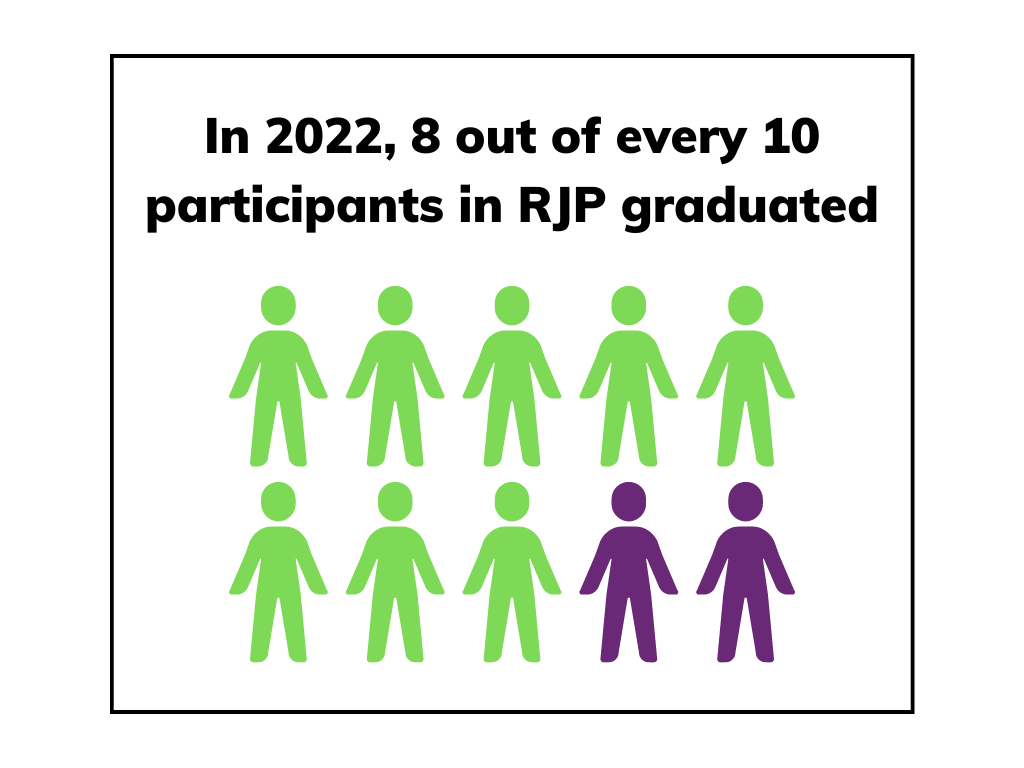
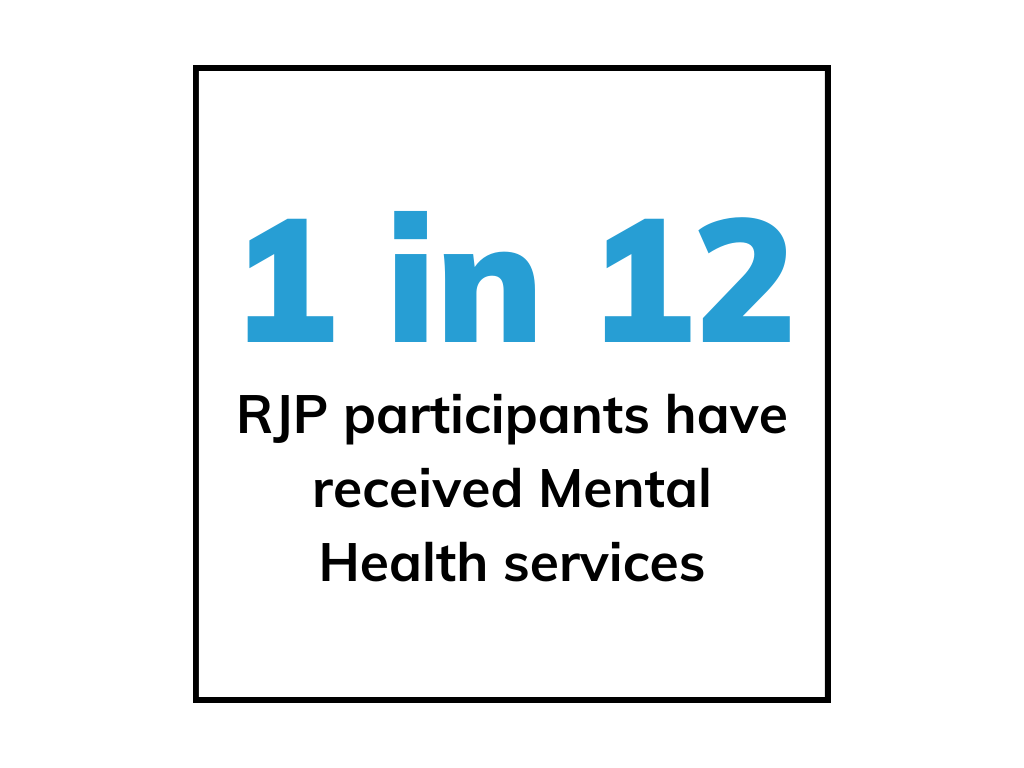
Eligibility Criteria
The District Attorney is exclusively authorized to establish, modify and apply eligibility criteria for its restorative justice diversion programs. The overall aim of these diversion programs is to reintegrate participants back into the community and promote self-sufficiency, while stopping the cycle of recidivism.
For all cases, the District Attorney will determine eligibility on a case-by-case basis working in collaboration with the law enforcement agency within whose jurisdiction the offense occurred. This eligibility criteria and misdemeanor offense list were developed in collaboration with Yolo County law enforcement agencies (LEA).
Join the RJP Volunteer Team
The Yolo County District Attorney’s Office is always seeking community volunteers to serve as panelists and facilitators in restorative conferences. Thanks to RJP’s minimal time commitment and flexible scheduling, anyone can serve! The RJP panelist training course is a prerequisite for service in any of the DA’s restorative programming options, If you have any questions, please fill out the Questions/Comments form below, If you are interested in becoming a volunteer, please fill out the Interest Form below, We look forward to welcoming you to the Restorative Justice Partnership Team!
Prospective volunteers must complete both the Panelist Training and Mock Conference Training sessions. Training is held regularly throughout the year. Volunteers must also complete a background check and observe a conference in order to serve as panelists.
- Restorative Justice Partnership Panelist Training – The Panelist Training covers the basic principles of Restorative Justice, the 3-step Restorative Justice Partnership conference model, and communication skills applicable to the Panelist role.
- Restorative Justice Mock Conference Training – The Mock Conference training allows participants to act out a conference from start to finish and practice applying the techniques and skills they learned in training.
The 4 Pillars of Restorative Justice Partnership
Restorative Justice Partnership strengthens neighborhoods impacted by criminal activity in four ways…
Restore Victim Restorative Justice Partnership is victim centered by placing emphasis on the victim’s needs. It focuses on offenders making things right to the greatest extent possible with their victims. Offenders pay restitution to victims who have suffered monetary losses or property damage.
Restore Community Restorative Justice Partnership creates an atmosphere of inclusion and responsibility by providing a direct role for residents to oversee the resolution of offenses in their city. When appropriate the offender can complete community service aimed at improving conditions in the area impacted by the crime.
Restore Offender Restorative Justice Partnership offers offenders a second chance by avoiding a criminal conviction on their record upon successful completion of the program. Offenders are also restored by recognizing and addressing the causes and effects of their actions. This recognition allows for true restoration and connection to beneficial community resources that can improve overall quality of life.
Educate Offender Restorative Justice Partnership educates offenders by helping them understand why they committed the offense which led to their current situation. Offenders learn about anger management, decision making, the dangers of substance misuse, and other topics designed to change or modify their behavior.
Restorative Justice Partnership does not discriminate on the basis of race, color, national origin, religion, sex, disability, and/or age.
Publications & Resources
To read the entire Four-Year Report click on the following link: RJP Four-Year Report
To read the entire Recidivism Study click on the following link: RJP Program Recidivism Study
To read the entire Restorative Justice for a Better Community click on the following link: Restorative Justice for a Better Community
Restorative Justice Partnership Printable Brochure | Restorative Justice Partnership Menu of Options – updated 7-15-21 | Restorative Justice Defined | 2013 DCTV Interview
All downloads are in Adobe Acrobat PDF format. Please click here to get the free Adobe Acrobat Reader.


